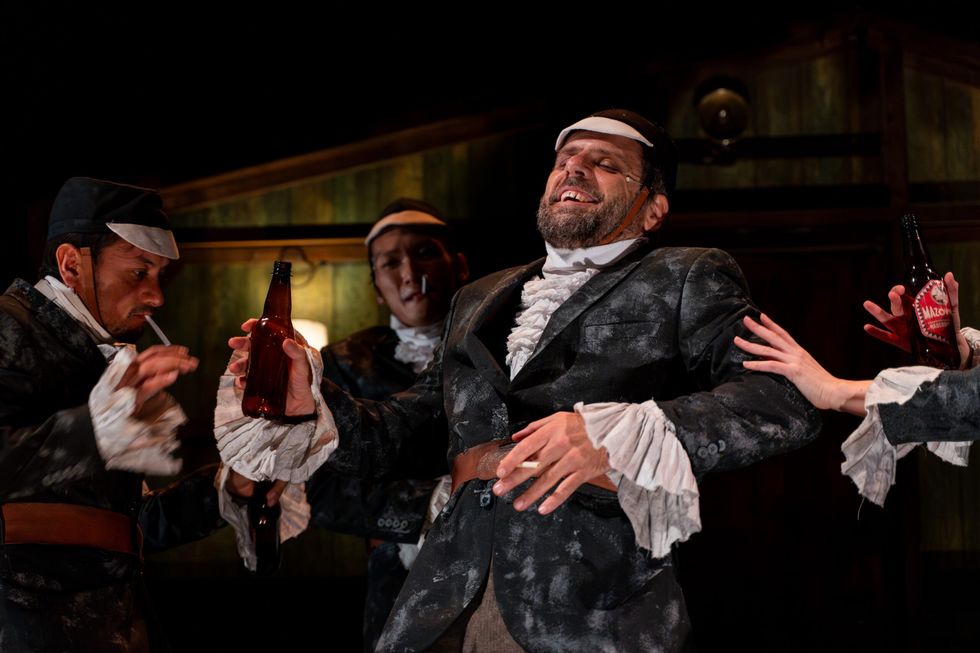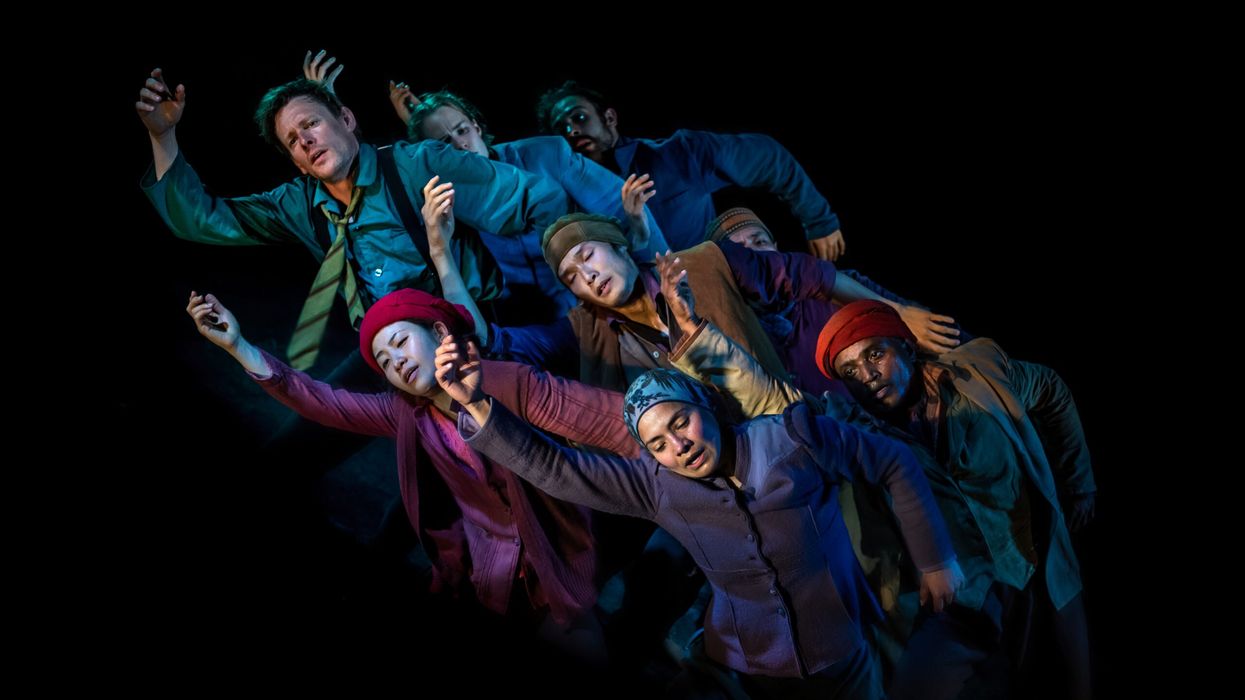KIN is an unusual piece of theatre about the plight of refugees over the generations, created by an Ipswich-based troupe called Gecko.
The story is told only through dance. There is no dialogue. The director, Amit Lahav, leads an international ensemble of eight, including an Indian.
I missed this, but one critic noted: “Families are shown separated and reunited, anguished and rejoicing, numerous times. One scene with an apparently Indian family appears to conjure a train, which might refer to partition-era India.”
Some sequences are easy to follow: the repeated brutality of border guards to wards would-be migrants. On another occasion, a guard spits into bags of food before handing them to refugees.
At the very start of Kin, refugees who are admitted into the host country have a stripe painted on their backs. Towards the end, we see refugees paddling desperately in dinghies. So, Kin is obviously a comment on the migration crisis, not just in Britain, but all over the world.
What will happen to the Palestinians in the Gaza Strip now that Israel has destroyed their homes in its effort to get at Hamas? Perhaps, by and by, some will clamber into small boats to get across the channel. Setting aside the justification for Israel’s action, we all know wars create refugees. Add to that climate change, which is accelerating month by month – it’s storm Isha in Britain this week – the global migrant crisis will only grow with the years.

In Kin, which is 80 minutes long without an interval at the Lyttelton Theatre at the National, the scenes flow into each other. However, it would have helped if minimal subtitles had been utilised in order to make life easier for the audience. Chris Swain’s lighting, however, is dramatic and helps explain what the displaced are experiencing.
The programme note reveals Kin was inspired by what happened to Lahav’s grandmother: “In 1932, to escape persecution, Leah and her family embarked on a journey from Yemen to Palestine. Ninety years later, her grandson Amit Lahav (artistic director of Gecko) reflects on the life-changing decision his family made to flee and build a better life. “This powerful piece by Gecko is a provocative story of desperation, compassion and acceptance, inspired by the migration stories of Gecko’s international performers and the extraordinary voyage Leah undertook as a young child.”
Lahav could have made Kin even more contemporary by delving a little deeper into his grandmother’s story. She must have escaped to the part of Palestine which became Israel in 1948.
There is a message from Lahav: “Twenty-two years ago, I wanted to make arresting, powerful, energised, visceral theatre that would speak to any human being on the planet. Since then, we have been developing a unique language, a style of making and a style of performing which allows us to create work that deeply impacts our audiences.
“Kin explores the lived migration stories of our international ensemble and reflects years of questioning and exploration. We are all the product of migration stories, whether we’re aware of them or whether they’re more distant.
“From the beginning, the idea excited me. Kin is a voyage toward empathy. Now, more than ever, we need stories that connect us.”
I have to say I wasn’t totally convinced by the Indian in the ensemble played by Saju Hari. The language used in the babel of tongues includes “Hebrew, Mandarin, Cantonese, Malayalam, Norwegian and Spanish, among others”.
Kerala, where people speak Malayalam, is one state in India where people are highly educated, self-confident and politically assertive. I have lots of friends from Kerala, but have never heard of anyone wanting to get into a small boat for the beaches of England.
Saju Hari sounds more of an economic refugee. But the overall message of Kin is a worthy one.
Kin is showing at Lyttelton Theatre at the National until Saturday (27).




